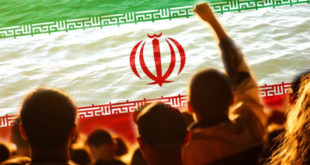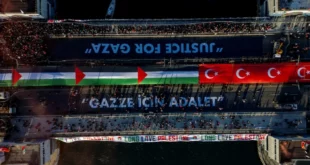TEL AVIV — Aghast at the destruction that ensued as Israel’s army and Hizbollah fighters waged war in Lebanon this year, Israeli David Sasson felt compelled to try to make contact with the Lebanese side.
He found small groups of Israelis and Lebanese, very much on the fringes in both countries, who were trying to build relations that they hoped might one day lead to peace talks between their peoples and governments.
“Israel knows how to make war but not peace,” said Sasson, 75, a Tel Aviv- and London-based businessman, who had worked to strengthen business ties between Israel and Egypt after they signed a peace treaty in 1979.
“This conflict has not been good for us and Hizbollah has been strengthened. We need to find a solution quickly,” he said as he sipped a coffee at a beachfront cafe in Tel Aviv.
To most appearances, the 34-day war that began when Hizbollah fighters abducted two Israeli soldiers on July 12 has deepened the enmity between the countries. The fighting cost the lives of 1,200 Lebanese and 157 Israelis.
However, some hope the war will serve as a spur to those seeking to reach across the divide.
“My family home in south Lebanon was destroyed during the war by the Israelis. Should I stop talking to them because of that?” said Lena Kobeissi, 26, a Lebanese Shiite Muslim singer living in London.
“Israel is a fact and the Arabs cannot remove it. We have to find a way to live with it.”
Neutral ground
The Israelis and Lebanese involved in the meetings have gathered in London, neutral ground that is home to many Israeli and Lebanese emigres, where they can meet in secret and without fear of reprisals from compatriots.
Contacts have also taken place in Amman and Seoul.
“It was very heated,” said Israeli Yael Lindenboim, who attended one of the meetings in London and joined Kobeissi and others to form a group called Doogree — Arabic for “straight talking” — with the aim of fostering dialogue.
Relations have long been tainted by bitterness, particularly since Israel’s invasion in 1982 to try to cripple Palestinian factions using Lebanon as a base. Israeli troops withdrew from southern Lebanon in 2000 after a 22-year occupation.
The latest war ended in a UN-sponsored truce on August 14, but prospects for talks between the two neighbours have looked as unlikely as ever.
Israeli Prime Minister Ehud Olmert called for talks and said he had made unsuccessful overtures towards Lebanese Prime Minister Fuad Siniora, who responded by saying Lebanon would be the “last state to sign peace with Israel”.
No sign of deal
The truce agreement allowed the deployment of Lebanese army soldiers in southern Lebanon, a move resisted by Hizbollah but there were indications that the Shiite group had emerged politically strengthened by surviving the Israeli offensive.
Israeli analyst Mark Heller said: “I do not think a Lebanese government has the authority or the public support to make a peace agreement with Israel.” Lebanese law forbids any contact with Israelis and there has been no willingness among public figures to be seen making gestures towards the Jewish state.
“It is just a waste of time. You cannot have dialogue with someone shooting at your head,” said Mohammad Haidar, 48, a British-based financial consultant prominent in London’s Lebanese community, who was in Lebanon during the war.
Nor is there much sign of hope on the Israeli side. There is a widespread expectation that fighting will resume at some stage with Iranian-backed Hizbollah, which says Israel should one day cease to exist.
A poll conducted by Tel Aviv University in October found that 56 per cent of Israelis surveyed saw the chances of a peace agreement with Lebanon as low or very low.
That has not discouraged the few who are struggling to build contacts.
Margaret Ali, a British-based Lebanese Christian peace activist who has visited Israel several times in recent years, went after the war to Haifa, among the Israeli cities that faced the heaviest bombardment from Hizbollah rockets.
“My brother was in Lebanon during the war and asked me how I could visit Israel,” she said. “We must not lose sight that ordinary people are looking for a way out.”
 Eurasia Press & News
Eurasia Press & News


